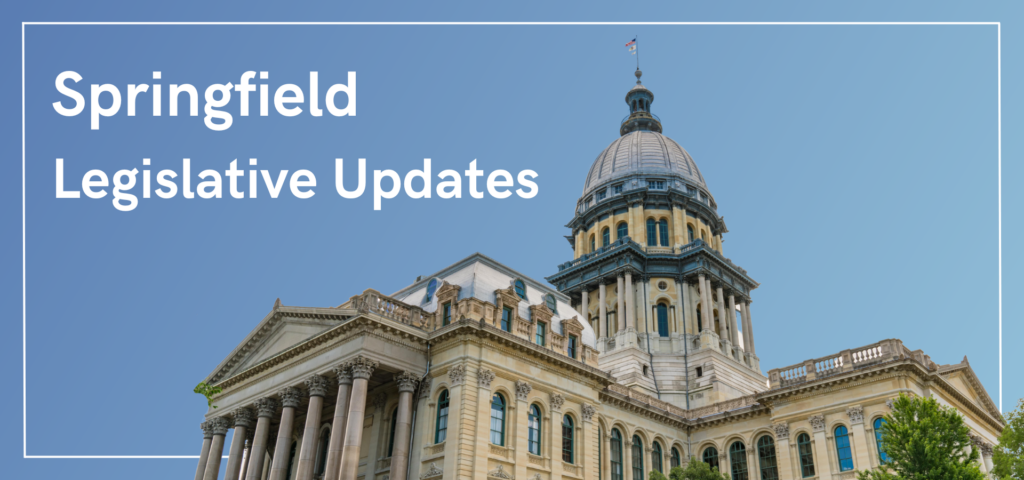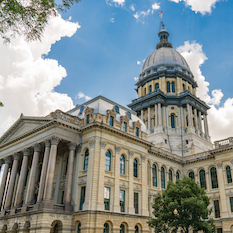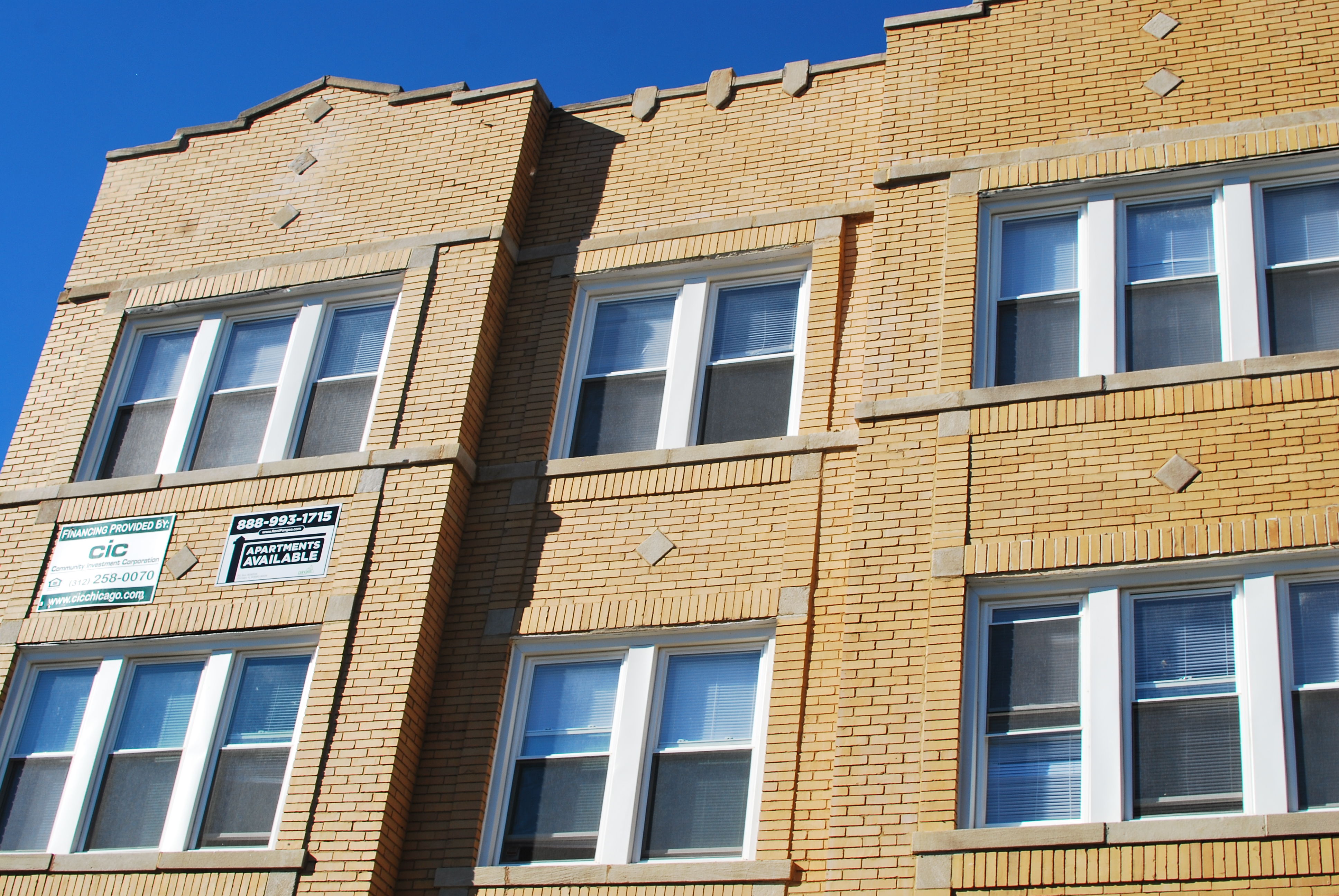
Read our 2024 Legislative Wrap Up Here
This spring, the Chicago Coalition for the Homeless (CCH) advocated for several statewide measures in Springfield to help remove barriers for people experiencing and at risk of homelessness. CCH policy and organizing staff, along with our grassroots lead efforts to pass bills that will impact students experiencing homelessness, extremely low-income families and children, and provide additional funding to homeless and housing service providers.
CCH’s 2024 Legislative Agenda: By Bill

HB 5407: Strengthening Supports for Students Experiencing Homelessness
Illinois has not funded homeless education in over fifteen years. Though the number of students identified as homeless has grown since that time. In recent years, the number of students experiencing homelessness in Illinois increased by 30.86% between the 2020-21 school year and the 2021-22 school year. The federal government has stepped in due to COVID-19 providing homeless education funding, but that support will end in September 2024. In reinstating funds for homeless education, CCH is asking the General Assembly to expand uses for homeless education funds alongside looking at novel ways in which to identify students experiencing homelessness as there are possibly up to 55,000 students experiencing homelessness who were not identified by school districts in Illinois.
Sponsors: Sen. Johnson / Rep. Mussman
Bill Status: Passed Both Houses, Awaiting Governor’s Signature

HB 5564: Strengthen the Homelessness Prevention Program (included in HB 4959)
The Homelessness Prevention Program is a 20-year-old program that has successfully ensured people maintain their housing. 88% of the people who utilize the program remain housed after receiving assistance. It saves the state thousands of dollars per individual in emergency services and shelter funding. Though funding for HPP services has grown, with additional funding additional assistance is needed to support the families and individuals contacting for assistance. With this legislation, providers will be permitted to use up to 30% of their funding for case management to ensure those who are assisted by the program remain housed after receiving assistance.
Sponsors: Sen. Fine / Rep. Jimenez
Bill Status: Passed Both Houses, Awaiting Governor’s Signature

HB 4768: Ending Housing Retaliatory Behavior
Tenants living in a building without access to heat or water sometimes have the added burden of being afraid to contact government entities to resolve the issues and might face retaliation from their landlords is a difficult position to be in. Illinois current statute provides that a landlord cannot retaliate against their tenant if they seek governmental intervention if in need of services but does not provide for any type of recourse for tenants. In amending the current statute we are seeking to expand it to specify actions that are defined as retaliation as well as the remedies available to tenants, both monetarily as well as specific performance.
Sponsor: Sen. Villa / Rep. Guzzardi
Bill Status: Passed Both Houses, Awaiting Governor’s Signature
Continued Advocacy Next Session

SB 3680/HB 5314: Community Safety through Stable Homes Act
Municipalities throughout Illinois have enacted so-called “crime-free housing and nuisance property” ordinances (CFNOs) under the guise of fighting crime and keeping communities safer. However, in practice, CFNOs establish a system that forces housing providers to unfairly penalize and sometimes evict tenants based on any alleged criminal or nuisance activity, pushing families into instability and even homelessness, which undermines public safety.
CFNOs frequently exclude people of color from housing and endanger our community’s most vulnerable members. This includes survivors of domestic violence and people with disabilities, whose calls for emergency services or the police can lead to eviction rather than the assistance needed. These ordinances often violate fair housing and other civil rights laws.
Making the Safe Communities and Stable Homes Act law will help make sure people aren’t afraid to contact the police, protect people from unfair discrimination, keep families in their homes, and refocus public policy on more effective responses to crime.

HB5432: Support the Community Partner Fair Contracting Act
The Community Partner Fair Contracting Act (CPFCA) will rectify structural inequities in the state’s contracting, payment, and court of claims systems to ensure that health and human service providers can better meet the needs of their communities.
- Ensure Timely Contracts and Payments: Amends the Prompt Payment Act (PPA) to require agencies to issue contracts within 30 days of the start of the grant term and approve bills or invoices within 30 days. It also shortens the time frame between when the bill is approved and when interest begins accruing from 90 to 45 days.
- Expand and Clarify Advanced Payment Eligibility: Amends the PPA to expand the list of critical services in statute and requires state contracts to identify a date of payment and whether a contract is eligible for PPA and advanced payment.
- Promote Flexible Contracts that cover the full cost of services: Amends the Grant Accountability and Transparency Act (GATA) to remove arbitrary caps on fringe benefits and prevents state agencies from limiting indirect costs in contracts or grant agreements to less than 20%.
- Expedite and Simplify Court of Claims Process: Amends the Court of Claims Act (CCA) to divert undisputed lapsed appropriation claims of less than $2500 and allow state agencies to pay claims from any appropriated funding source.

HB 4769 Illinoisians Dedicated to Offering Transitional Solutions
In Illinois, as with much of the country, people experiencing homelessness do not always have access to temporary shelter. For those individuals, finding refuge under viaducts and expressways may be the only way that they can find shelter from the elements. Understanding that these spaces also need repair or other construction projects, making sure that people who are using the space for shelter are notified and assisted with finding other options is important as well. This legislation would require departments of transportation to conduct assessments of whether people experiencing are in the pathway of construction and if so partner with state or local human service departments to identify shelter or other housing opportunities.
Sponsor: Rep. Guzzardi
Bill Status: Rule 19(a) / Re-referred to Rules Committee
How State Legislation Moves Through Springfield
Once a bill is introduced in the House and/or Senate it must be assigned to a committee, where it will be discussed till the committee decides it is ready to pass. After the committee the bill will move to the floor where the entire House/Senate will discuss, amend, and hopefully pass it. This process is repeated in the next chamber, and once it passes through both the House and Senate the Governor will be able to sign it to law.

We have created the above graphic to help guide how legislation will progress, you can see an updated version of this graphic for each of our legislative items on their details page.
Bills pass through the Illinois Legislature in the following timeline, you can keep track of the current status of a bill here on our website, or on https://www.ilga.gov/legislation/
Chicago Coalition for the Homeless does not accept government funding. Instead, when CCH advocates for public support, it is for the programs that shelter, house and assist homeless youth, students, families, and vulnerable adults.
